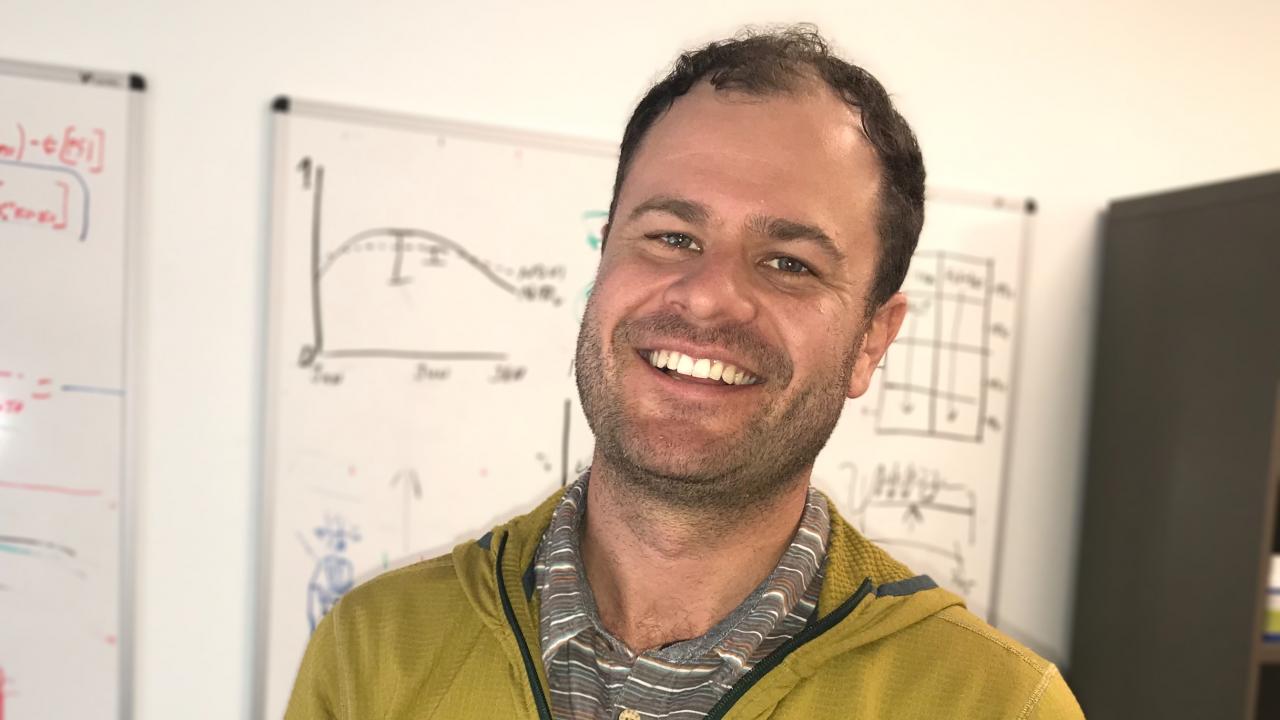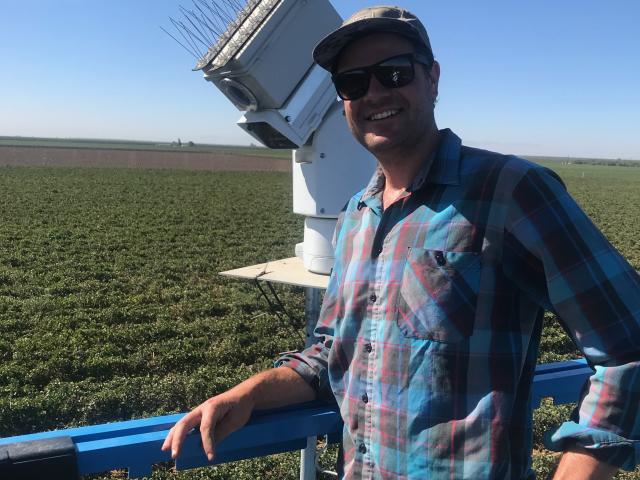
Troy Magney receives Early Career Award from the American Society of Plant Biologists
Troy Magney, assistant professor in the Department of Plant Sciences, has received the Early Career Award from the American Society of Plant Biologists. The award recognizes outstanding research from scientists who are still within the first seven years after receiving their doctorate degree and who have made exceptionally creative, independent contributions in their field.
Magney, who joined the Department of Plant Sciences in November of 2019, strives to understand plant systems through the lens of remote sensing and environmental informatics. He says, “The ability to scale our understanding of plant biophysics from leaf to space has many nuances, which makes it fascinating to work on.”
Throughout high school and college, Magney worked various construction and maintenance jobs, where he developed a keen interest in building and tinkering with things. Originally attracted to the physical sciences, it wasn’t until Magney took a course on plant biophysics as an undergraduate that he became enthralled with how plants interact with their environment. Ultimately, Magney received his bachelor’s degree in physical geography from the University of Denver.
Following undergraduate studies, he worked as a field instructor at the McCall Outdoor Science School in central Idaho teaching middle school students ecology, biology, hydrology and snow science while venturing into the wilderness. During this time, he obtained his doctorate degree from the University of Idaho in 2015, where he sought to understand the patterns and processes controlling plant ecophysiology with lidar and hyperspectral data collected in the Alaskan arctic and nearby wheat fields.

After his doctorate, Magney was awarded a NASA Postdoctoral Program Fellowship in the Jet Propulsion Laboratory at the California Institute of Technology. There, he served as a postdoc and later a research scientist in the Carbon Cycle and Ecosystems group. He developed techniques to map and measure plant and ecosystem photosynthesis from towers, planes and satellites.
“Magney’s outstanding abilities in integrating different analytical and computational approaches are pushing the frontiers of plant biology towards a better understanding of the essential role plants play in the multitude of processes making our planet livable,” wrote Eduardo Blumwald, distinguished professor of plant sciences and Will W. Lester Endowed Chair, in his nomination letter.
As an assistant professor at UC Davis, he has been working on a variety of applications for detecting plant stress, pathogen pressure, and carbon uptake in agricultural, such as vineyards, strawberries, almonds and beans, and natural ecosystems, like the arctic tundra and evergreen forests. His lab develops instruments and methods for mapping vegetation structure and function at the leaf, tower, airborne, and satellite scales. This includes optical sensors that measure vegetation reflectance, thermal emission and solar-induced fluorescence.
Outside of his own research, Magney is leading an education program at UC Davis that trains researchers in agriculture and climate science on innovative data analysis approaches; He is also leading UC Davis’ diversity, equity, and inclusion efforts, Blumwald wrote.
Magney is grateful to all of the supportive mentors who have encouraged him to try new things and to dive into the unknown.
“My Ph.D advisors took a chance with me,” he said, pausing for a moment. “I never intended to go to grad school, but they encouraged me to try and I’m eternally grateful for the opportunity they gave me. I am humbled by this award.”
Congratulations to Troy Magney for receiving the Early Career Award from the American Society of Plant Biologists.
